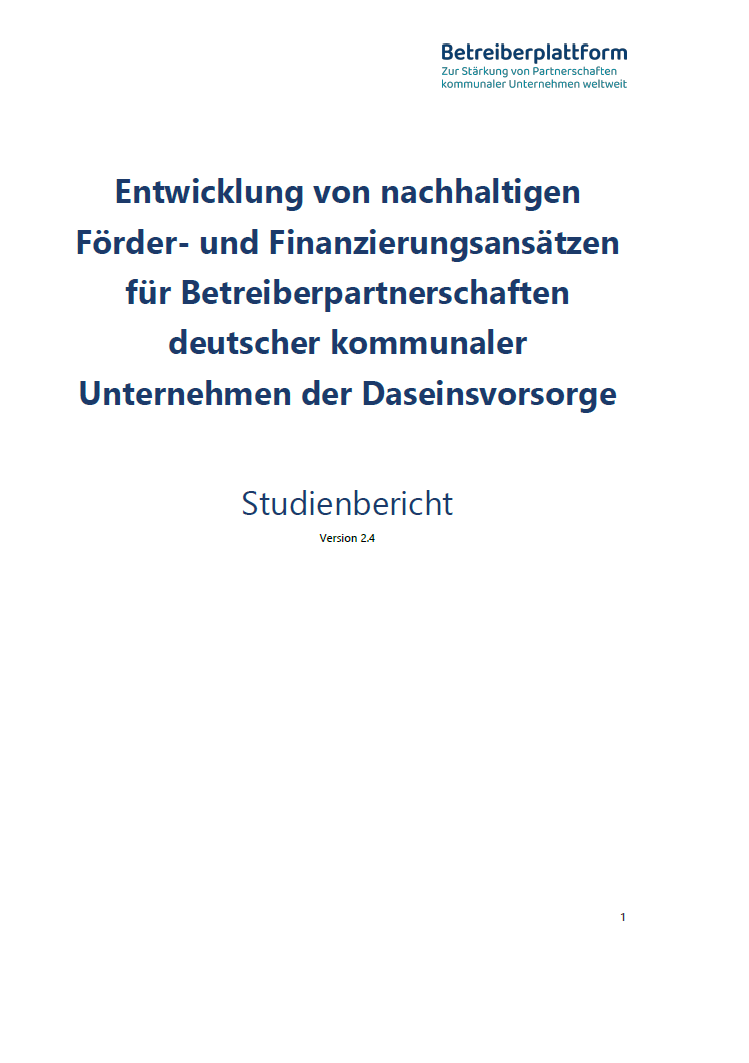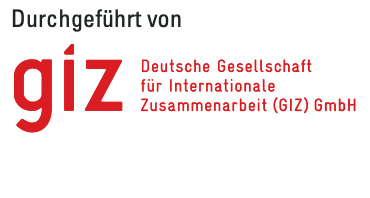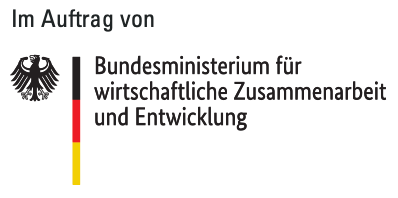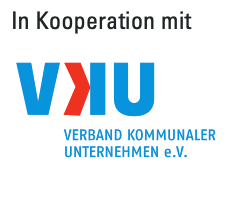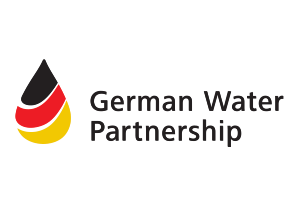More and more municipal companies are becoming involved in international knowledge exchange partnerships. International engagement is by no means an end in itself. Through development cooperation, municipal companies can make a direct contribution to achieving climate targets, participate in international knowledge exchange and position themselves as an attractive employer through exciting and meaningful projects. However, the economic framework conditions for involvement are not always clear and the financing of such partnerships from public funds has its limits.
In order to address these challenges, the Deutsche Gesellschaft für Internationale Zusammenarbeit (GIZ) GmbH has conducted a study. The study analyses various options for sustainable financing of operator partnerships and the appropriate legal framework.
After preliminary study results were initially presented to a broader public and discussed with representatives of municipal companies from different sectors and organisational forms, the final version of the study is now being published.
The Utility Platform for strengthening partnerships of municipal utilities worldwide (GIZ) is continuously working on the sustainability of financing for operator partnerships in order to establish them as an integral part of German development cooperation.
Both the study and legal opinion are only available in German.
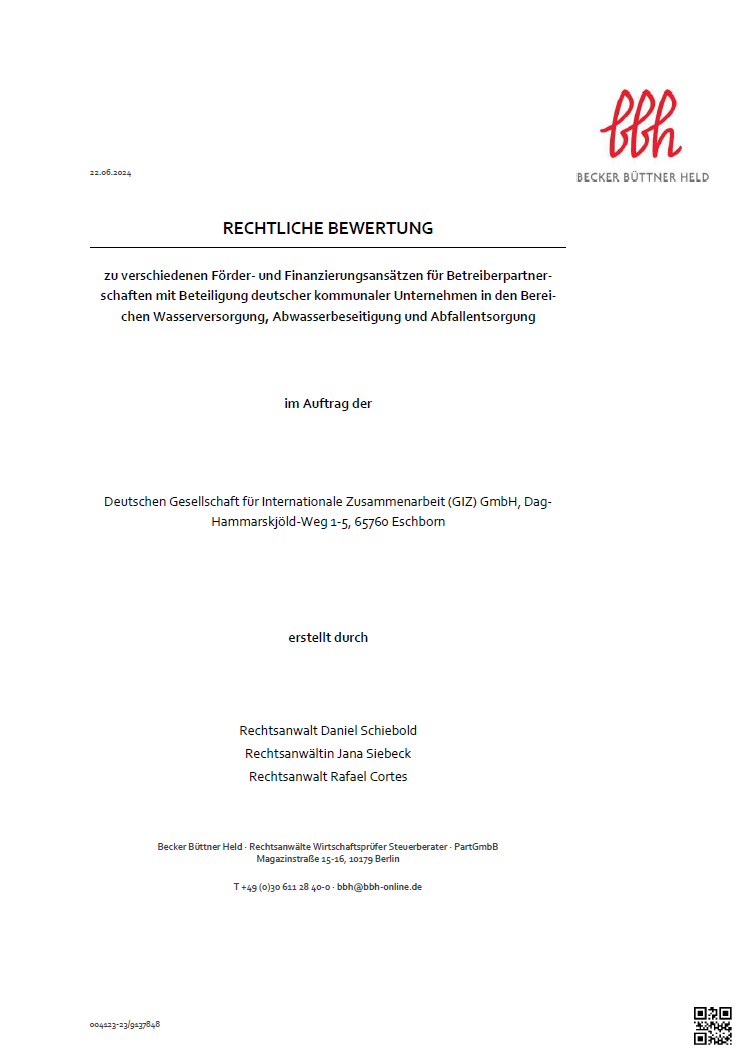
Legal opinion: Sustainable financing approaches (in German)
The legal opinion analyses sustainable financing approaches for international partnerships involving German municipal companies in the areas of water supply, wastewater disposal and waste management.
The legal opinion primarily considers the legal admissibility of financing via the fees and charges paid by the operator’s customers for water supply, wastewater disposal and waste disposal services – modelled on the financing model used in other European countries. The legal opinion differentiates between organisational forms that levy charges and those that levy private-law charges.
The legal opnion also examines other approaches to financing municipal operator partnerships, namely financing via the water abstraction fee, the wastewater levy, the single-use plastic fund, donations and sponsorship from customers and suppliers of the operating companies or from other funds from the operators or funds from the municipal budget.
Study: Sustainable financing approaches for utility partnerships (in German)
To date, operator involvement has been financed primarily from public funds, mainly by the German Federal Ministry for Economic Cooperation and Development (BMZ). However, the financing of such partnerships from public funds is reaching its limits and the economic framework conditions for municipal companies to make their own contributions to finance their involvement have so far been insufficiently analysed. This study attempts to fill a gap here and – differentiated according to the organisational form of the companies – to address the legally permissible options.
The study also provides recommendations for improving the legal framework, creating incentive mechanisms and possible organisational structures to make the financing of operator partnerships more sustainable and resilient.
The approaches described here are not intended to replace public funding, but rather to expand the scope for local economic players who wish to become involved internationally.
